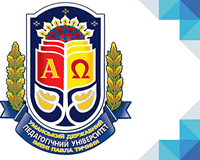Please use this identifier to cite or link to this item:
https://dspace.udpu.edu.ua/handle/123456789/15805| Title: | Professional Mobility as a Factor of Professional Success of a Modern Specialist in the Conditions of Distance Learning. |
| Other Titles: | Професійна мобільність як чинник професійної успішності сучасного фахівця в умовах дистанційного навчання. |
| Authors: | Semchuk, Bohdan Ivanovich Havryliuk, Svitlana Mykolayivna Karnaukh, Lesia Petrivna Balakirieva, Viktoriia Palshkova, Iryna Leonova, Veronika Bida, Olena |
| Keywords: | systematic quality of the specialist professional mobility competitiveness in the labor market distance learning education student training pedagogical support in the process of distance learning mixed learning professional development |
| Issue Date: | 2022 |
| Publisher: | IJCSNS International Journal of Computer Science and Network Security. |
| Citation: | Semchuk, B., Havryliuk, S., Karnaukh, L., Balakirieva, V., Palshkova, I., Leonova, V., & Bida, O. Professional Mobility as a Factor of Professional Success of a Modern Specialist in the Conditions of Distance Learning. IJCSNS International Journal of Computer Science and Network Security. 22(8). 2022. PP. 260-268. |
| Abstract: | The article considers the training, competitiveness of specialists, professional mobility, professionalism and competence of specialists in the context of distance learning. The advantages of distance learning are shown. The characteristic features of distance learning in the preparation of students and in the implementation of these technologies in the educational process of higher educational institutions are determined. Competitiveness, professional mobility, professionalism and competence of a specialist are qualities that determine a person's life and work success. Professional mobility is interpreted as a systemic quality of a specialist's personality, which includes a whole range of knowledge, skills, abilities, personal qualities, value orientations, and so on. The vision of mobility of specialists by foreign scientists is presented. It is noted that the classification of professional mobility presented in the article makes it possible to organize various movements from a single position, to present them as separate manifestations of the general process of professional and pedagogical mobility, to determine which type of mobility ensures the performance of certain social functions. It was found that mobility can be differentiated into differentiated and intergeneration. According to the subject, individual and group mobility are distinguished; according to the direction internal and external. The classification of employees according to their attitude to mobility is shown, which can be divided into the following groups: actually mobile; potentially mobile; actually stable; potentially stable. |
| URI: | https://dspace.udpu.edu.ua/handle/123456789/15805 |
| Appears in Collections: | Факультет дошкільної та спеціальної освіти |
Files in This Item:
| File | Size | Format | |
|---|---|---|---|
| 20220832.pdf | 301,84 kB | Adobe PDF | View/Open |
Items in DSpace are protected by copyright, with all rights reserved, unless otherwise indicated.

